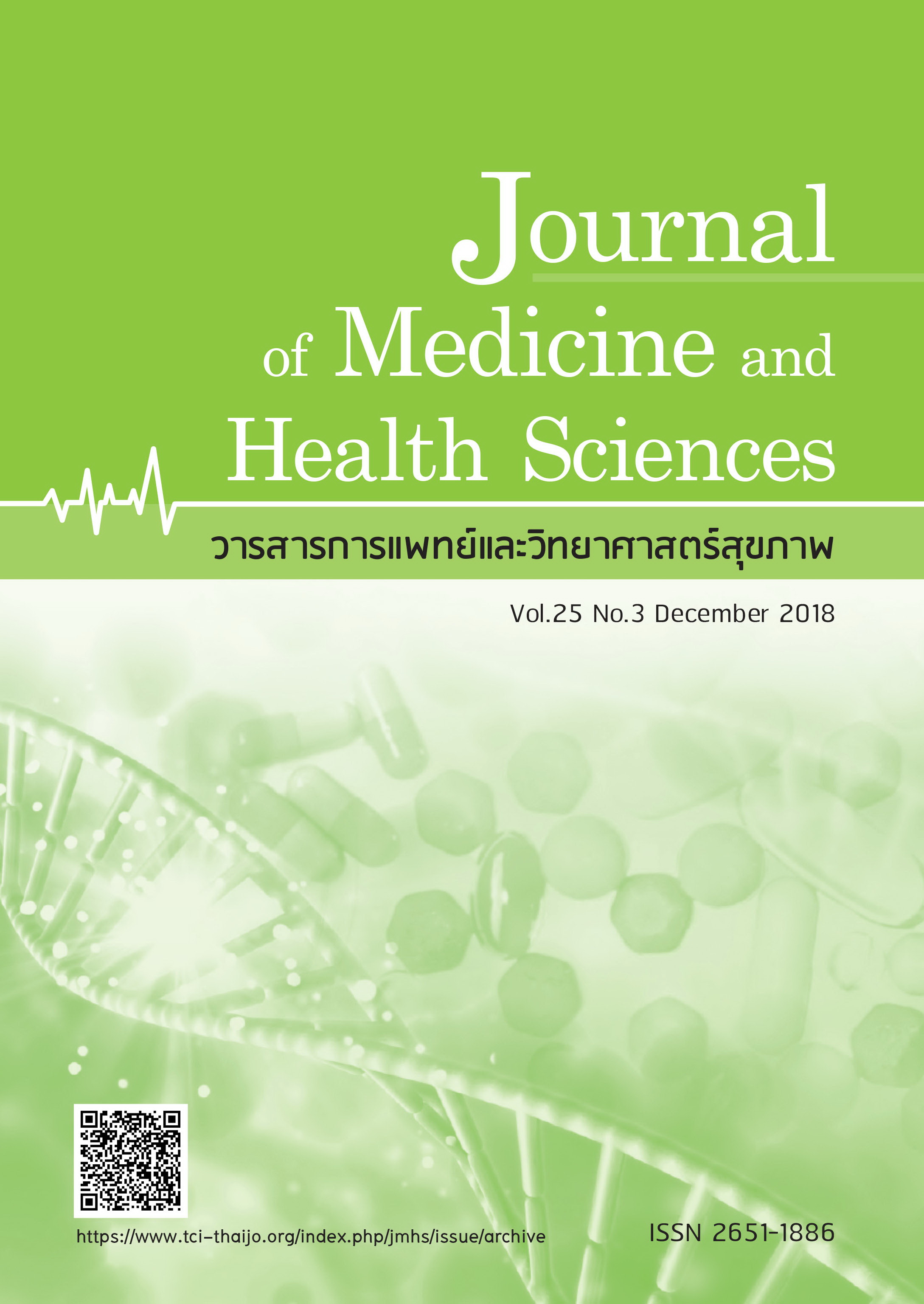The relationships between personal factor, Health Belief Model, pesticide poisoning prevent behaviors from pesticide toxicity
Keywords:
Heath Belief Model, pesticide poisoning prevention behaviors, gardeners, pesticideAbstract
This research was a cross-sectional descriptive study applied Health Belief Model for
framework design. The study aimed to determine factors associated to pesticide poisoning
prevention behaviors including personal factor and perceptions of pesticide poisoning among
300 gardeners at Ongkharak district, Nakhon Nayok province using a questionnaire on the
perceptions of pesticide poisoning, pesticide poisoning prevention behaviors. Data analysis
was done using descriptive statistics and Pearson’s Product Moment Correlation Coefficient.
Results showed that most of gardeners were female (59%), aged 22 - 59 years (78.70%), who is
the owner (87.70%) of the garden, and graduate from primary school (51.30%) time of pesticide
use was 10 - 20 years (54.00%), and the frequency of pesticides use was > 5 times/month
(7.70%). The duration of each pesticides spraying was 1 - 3 hours (61.70%), and they had sign of
acute health effect after spraying pesticides (27.30%). In addition, it was found that gardeners
had pesticide poisoning prevention behaviors in middle level 1.86 (SD=0.41). The perceive
risk, perceive benefit and perceive baerier had positive relations to with pesticide poisoning
prevention behaviors with a statistical level p<0.01. The research suggests that pesticide
poisoning prevention behaviors can be enhanced by developing program with applying Heath
Belief Model to reduce health effect of pesticide toxicity among gardeners.



